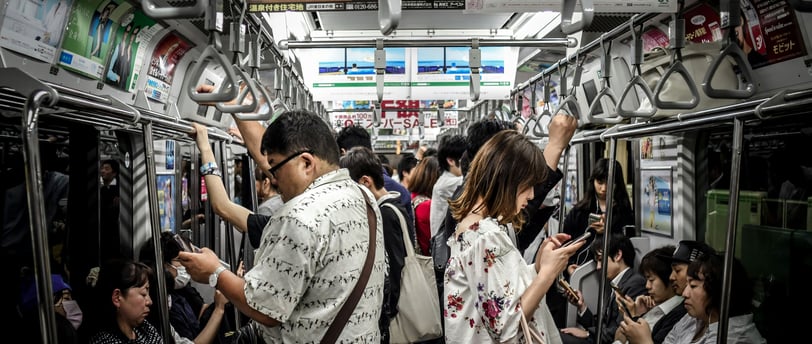Your Mind’s Diet: How Consuming Content Affects Your Mood, Focus, and Creativity
What we feed our minds is just as important as what we feed our bodies. The content we consume—news, social media, and endless information—can impact our mood, focus, and creativity. Research shows that excessive negative content can increase stress and drain mental energy. In this post, I share the science behind digital overconsumption, how it stifles creativity, and the steps I’ve taken to reclaim my focus—including phone locks, website blockers, and mindful content consumption. Read on to learn how you can curate a healthier content diet for a more productive and fulfilling life.
Nick Godfrey
2/15/20243 min read


The Science Behind Content and Mood
When we think about nutrition, we often focus solely on what we put into our bodies—whole foods, macros, hydration. But there’s another kind of nutrition that plays a major role in our well-being: the content we consume daily. The news, social media, and online discussions we engage with have a direct impact on our mood, mental bandwidth, and ultimately, our ability to be productive and creative.
Studies have shown that consuming negative news can significantly impact our emotional state. Research published suggests that media exposure to collective stress, such as extensive coverage of traumatic events, can lead to measurable negative psychological effects, including increased stress and anxiety.
When we constantly absorb information—especially from news cycles designed to trigger emotional responses—our brains get overloaded. This leaves us feeling drained, reactive rather than proactive, and unable to focus on the things that actually matter to us. In short, the information diet we choose can either nourish or deplete us.
The Cost of Too Much Noise
Beyond just affecting our mood, the sheer volume of content we consume has another downside: it stifles creativity and clarity. In the "What Do You Want to Want?", Kyle Eschenroeder argues that consuming too much input from external sources can make it harder to define what we truly want in life. Instead of following our own internal compass, we get swept up in trending topics, online debates, and algorithm-driven content that might not serve our personal growth.
If we’re constantly bombarded with information, our brains don’t have the time or space to process, reflect, or create. Creativity thrives in stillness, not in the noise of endless scrolling.
The constant influx of information eliminates moments of boredom, which are essential for fostering creativity. As noted in The Guardian, boredom serves as a critical emotional signal, prompting individuals to seek new experiences and ideas, thereby enhancing creativity.
Solutions: How I’ve Taken Control of My Content Diet
I've wasted too many days glued to my phone and so distracted, I do not know what I want or how I want to be. Social media and news websites are my weakness, any boredom I feel the impulse to pick up my phone and consume whatever I can get my hands on.
In response to this, I’ve made intentional changes to limit my exposure to negative and excessive content. Here are some of the solutions that have worked for me:
Physical Barriers to Distraction – I use a Kitchen Safe to lock my phone away when I need to focus. This prevents me from mindlessly picking it up and getting lost in content that adds no real value. I can set a time, i.e. 2 hours, and my phone will be locked in a plastic box for that amount of time.
Digital Detox on My Work Devices – I’ve installed Chrome add-ons like FocusGuard that can block any websites on my work laptop. This keeps me focused on productive tasks instead of falling into the black hole of endless scrolling. I have added all social media websites, and all news websites from across the world using a list of all news websites on GitHub. This is then password protected using a website generated password that is archived in my emails to increase the steps I need to take to unlock the websites.
Accountability Through Parental Controls – Now this one requires a solid relationship and trust...My partner and I use Google's Family Link to block all news websites and social media apps on my phone. My phone locks at 9:30 PM and doesn’t unlock until 7:00 AM the next morning, ensuring I get a proper mental reset overnight and improves my sleep. There may be some way you can use your own alternative Gmail email address to achieve this also. But this way I cannot really change anything.
Intentional Consumption for a Healthier Mind
Just like with food, being intentional about what we consume digitally can have a profound impact on our well-being. By cutting out unnecessary noise, we make room for deep thinking, meaningful work, and a clearer sense of direction.
If you’ve been feeling overwhelmed, distracted, or creatively stifled, consider taking a step back from your content diet. The less we consume mindlessly, the more we can create, build, and truly engage with the life we want to live.
With imperfection
Nick


